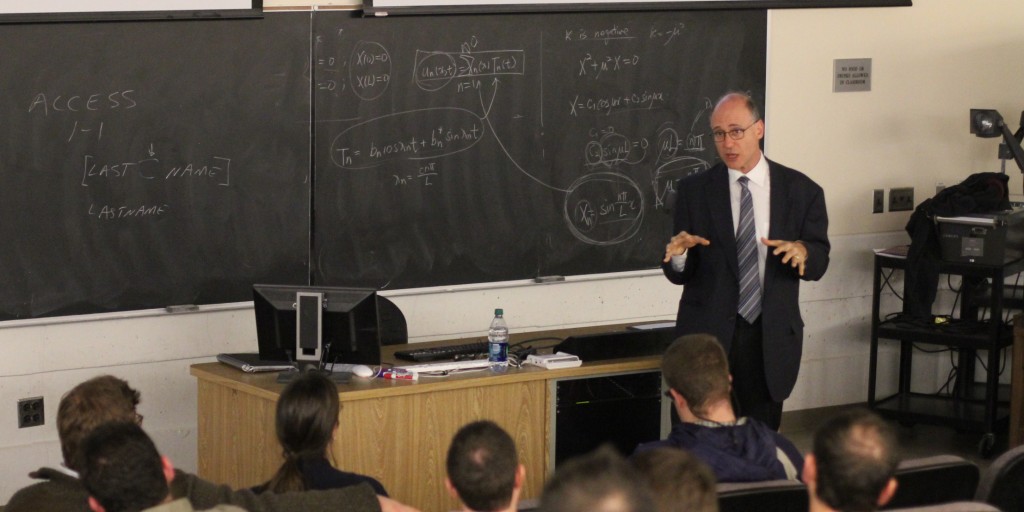Don Green, Ivy League professor and political writer, spoke at Binghamton University Thursday about strategies to mobilize voters.
During the event, “The Science and Pseudo-Science of Winning Elections,” he discussed smart campaigning and the findings he and his colleagues discovered about modern day campaigns.
One of the topics he highlighted during the presentation was voting rates, which have dipped below 60 percent in many elections.
“The United States has the second lowest voter turnout of any Western country,” Green said.
Green argued that this stems from the inability of campaigns to properly encourage citizens to vote and the mundane action that voting had become.
“Right now, voting is not an attractive experience for many,” Green said. “Voting is a kind of bland experience. People wonder, ‘Why should I care?’”
While the event attracted nearly 60 students, Jonathan Kranso, one of the organizers for the event and an associate professor of political science, said he believes the political climate on campus is tepid.
“Campuses are frequently treated as a politics-free zone,” Kranso said. “Student turnout at Binghamton has basically sucked. But it’s not the case that student turnout sucks everywhere, its because no one has tried to engage the students at Binghamton.”
During the presentation, Green spoke about voter turnout strategies that could create a more sociable voting experience and encourage canvassers to interact more with voters.
“I thought it would be good to canvas door-to-door, especially in the dorms where you can find lots and lots of students.” Green said. “I suggested that they encourage students to pledge to vote.”
Green told students that in the 19th century, voter turnout had been between 80 and 90 percent because of election day festivals.
“It was certainly fun, a lot of parties were furnishing whiskey and there was a lot of rowdiness,” Green said.
He said he believes the same principle could bring in more voters again.
“I think attracting a variety of different performance groups on campus to appear and perform and attract others,” Green said. “That also goes for any local celebrities who might be willing to come down.”
Jon Mermelstein, a freshman majoring in history, said he agreed with Green’s idea.
“I think it could really be a cool idea,” Mermelstein said. “It will remind people who are not following it that closely that the election is today. It will give the illusion of enthusiasm to people who might not feel like people care and if people think that other people care then they are more likely to care themselves.”



